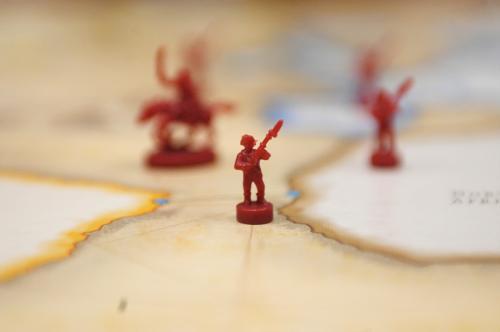A spectre is haunting America–the spectre of Communism, obvi. 2007’s certainly not good for democracy, at any rate. The rich-poor gap in the United States of Capitalism just keeps on gapping, and the U.S. military’s actions in Iraq have contributed to a political situation that’s less “independent state” and more “state of confusion” as of the new year. Across the pond, old-school Communist stronghold the People’s Republic of China (PRC), the superpower perpetually on the verge of blowing up (literally and figuratively), now claims the world’s fourth largest economy as well as the site of the 2008 Summer Olympics. But the next Red Scare might come not from the PRC, but from our own hemisphere. So much for containment.
A new leader, Venezuela’s president Hugo Chavez, is taking a Fidel Castro/Che Guevara approach to government: one part faux-Socialist, one part seriously Communist, one part smokin’ hot. President Castro, fearless leader (or, you know, dictator) of Cuba for more than thirty years, transferred his governing powers to his brother in July 2006 due to illness. Despite having a foot and a half in the grave by all reports but the Cuban government’s own, Castro’s charisma, healthy facial hair, and daring sartorial choice of 24/7 combat boots and fatigues have created a larger-than-life image that will almost certainly outlive him. America has hoped for years that Castro’s death will leave a vacuum that the U.S. can fill with some of that democracy we’re so good at implementing. Unfortunately, if Chavez’s rise to power is any indication, things may not go according to plan.
Where PRC President Hu Jintao is quiet and withdrawn in public, Chavez takes a slightly different approach, calling President George W. Bush “the Devil” in a speech at the United Nations in September. While Chavez ditched his camo for a suit after a failed coup attempt in the 90s, he’s retained a Castro-esque military spunk and penchant for tyranny that polarizes his people. For every Venezuelan who wouldn’t mind going by Comrade, another distrusts Chavez’s hard-line anti-globalization policy and his choice to take some economic cues from the likes of Joseph Stalin. Still, these odds are better than the sub-30 percent approval ratings President Bush is currently working with. Maybe Americans could use a President who knows his way around an M16.
What’s wrong with a little collective ownership, anyway? And doesn’t everybody love a parade? As Parker J. Meares ’07 points out, American ceremonies of pomp and circumstance fall a little flat compared to Communist efforts. “I feel like the Commies have pretty good marching bands,” he says. “When we have parades, we have, like, Snoopy balloons. When they have parades, they have fucking tanks. They shoot fucking rockets through the streets.” Perhaps comparing Tiananmen Square with the Macy’s Thanksgiving Day Parade is unfair. But a cult of personality does go a long way toward inspiring obedience and support in a nation. And if all else fails, threats of physical harm are generally successful.
Harvard students know why Communism is attractive. “If you hold off, they kill you, right? I’d just go for it, get right on the bandwagon,” says Meares. Natalie D. Evans ’08 shared the experiences of a friend under Communist rule in East Germany. “If you brought pieces of scrap metal to the automobile factory,” she said, “you got your car five to seven years sooner!” Who said Communism was inflexible? But Evans also warns, based on time spent in China: “Communist cuisine is terrible. Worst fucking food I’ve ever had.” Capitalism, in contrast, is delicious.
The closest thing Harvard students have to a Commie clubhouse until the revolution comes is the Dudley Co-op, a former Red hotbed that still boasts a decidedly left-leaning group of residents, though the current crowd is more into free love and vegetarian cuisine than jackboots and iron fists. There’s also the used clothing store Proletariat in The Garage, presumably so named because of its secret plans to re-distribute stinky $50 Member’s Only nylon jackets from each according to his ability, and to distribute them to each according to his need. That somebody very well might have been a member of the bourgeoisie, for all anyone knows.
No matter how hot Chavez gets, don’t look for a sympathetic Harvard organization to join the Square’s Communist protesters–in Evans’ words: “Those people are obviously insane.” Christos N. Theophanous ’08 doesn’t see a threat from either crazy Square people or world leaders: “Will Communism be big in 2007? Well…I think other things will be bigger.” Watch it, Theophanous. The students have nothing to lose but their chains. Or something.


